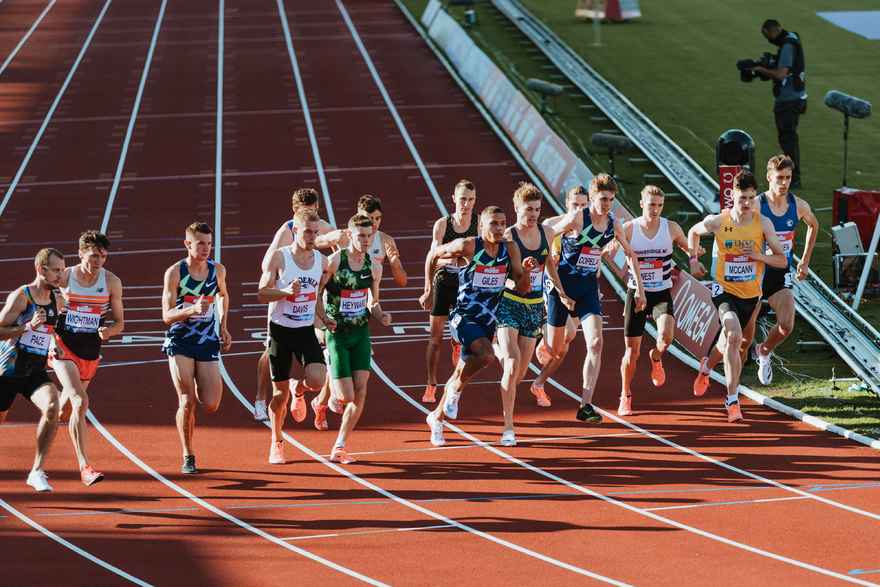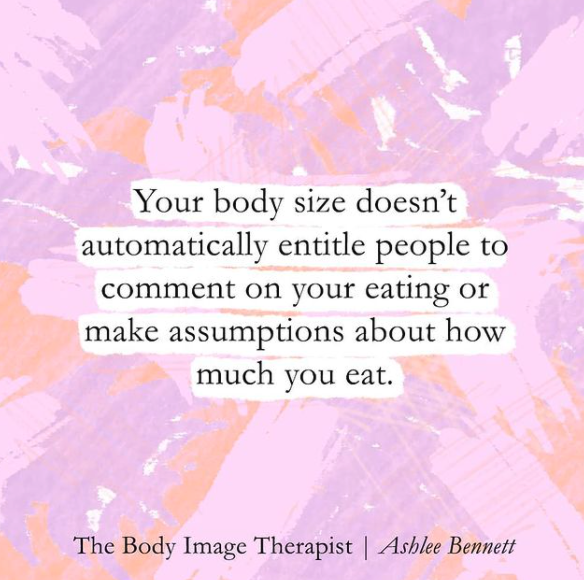
I. Am. Fed. Up.
Fed up of hearing sports commentators discuss a professional athlete’s weight, size and body shape. Fed up of watching runners – and more importantly, friends – lose their way in the sport in attempts to achieve some sort of aesthetic or “ideal.” Fed up of hearing how scary sugar and fat and carbohydrate is. Fed up of being unable to help.
I’m fed up of the obsession we have with athlete’s bodies. Do they have a period? Have they lost/gained weight? Are they eating enough? Are they running too many miles? I’m fed up of worrying what others will think about me, my training, my size. The whole thing is counterproductive, a waste of time and energy. It may be coming from a good place, a place of care and kindness; sometimes it’s necessary and there is absolutely nothing wrong with that. Good health is vital for athletic longevity and general quality of living. To find the balance of performance and wellbeing is the best thing an athlete of any ability can do. I’m not disparaging that.
What I’m fed up with is the fact that these thoughts, obsessions even, about appearance and physique encompass our sport to begin with. As distance runners, why are we obsessed with how our bodies look? Why are we striving for an often-unattainable aesthetic? Why are eating disorders reported in up to 47% of elite female athletes competing in “leanness sports”[1]? Where are we going wrong?
Awareness about relative energy deficiency in sport has never been higher. At university and college level, female athletes particularly are knowledgeable and well-versed in the consequences of under-fuelling and overtraining. Too many of them have personal experience of it. For too many, some form of damage has already been done.
This is apparent across all levels – 67% of GB athletes competing at World Junior Championships 1998-2012 failed to represent GB at a senior level [2]. Of course, many factors influence this transition – this study identified 59 – but an obvious one is the sustainability of athletes’ training, fuelling and health.
Despite the awareness and information we have, young impressionable athletes are still falling into the same trap. Whether it be knowingly getting lean for (temporary) performance gains, or if losing weight is a side-effect of external factors; too many are getting injured, becoming fatigued, and, in some cases, causing irreversible damage to their bodies. And it’s in no small part because of this obsession the sport has with appearance, shape and size.
This is equally significant for men. I’ve seen several boys – unknowingly, in many instances – struggle with disordered eating, under-fuelling and overtraining. And in some ways, it’s worse for them, because they aren’t talking about it in the same way female athletes are. It’s still being brushed under the rug. Contrastingly, for female runners, rarely a day goes by where these issues are not talked about, to varying effect: sometimes it is helpful and necessary, other times it becomes damaging, toxic even. Regardless of gender, this matters.
 If you enjoy this post, click the photo above to check out Jessie Tappin's story on her body confidence struggles as an international athlete. / Photo by @fills.fotos.
If you enjoy this post, click the photo above to check out Jessie Tappin's story on her body confidence struggles as an international athlete. / Photo by @fills.fotos.
The world outside of sport isn’t any better. Social media, celebrity culture, the fashion industry, all of it reinforces beauty standards for men and women, with the lean figure continuing to dominate. Add the misconception “leaner = faster” that dominated endurance running for decades, and this is what we are left with. And things are not going to change on their own.
I think it’s the judgement that frustrates me most. The pressures that we feel because of this, not wanting to make others look at you differently, analyse what you’re doing, talk about you when you’re not there. It works both ways – comments about losing and improving health can be equally detrimental if taken the wrong way. Even in close friendships, this judgement can persist.
Is it all doom and gloom? Are future generations of athletes destined to suffer from the same mistakes? I don’t think so. And to be clear, I’m not suggesting we stop talking about athlete’s health. If we are going to improve these statistics and redefine running, the conversation needs to continue, to expand – to properly include males, and not just mention them as an asterisk.
But it has to be done as prevention. We need to be taught – before performance and competition become important – the necessity of sensible training, adequate nutrition, proper recovery. More ¹ better. Lighter ¹ faster. It’s healthy, sustainable habits and a nuanced balance of quality and quantity that generates athletic success. And coaches, parents, athletes need to know this before it’s needed. They need to know it before it’s too late.
And most importantly, we have to move attention away from aesthetics. We have to stop looking at other athlete’s bodies. We have to limit our judgement about what other people look like, how much they’re running or eating. Move the focus away from results and accomplishments, and toward enjoyment and experience. Away from what our bodies look like, and toward what they can do.
For a long time, I was stuck in this achievement-oriented, aesthetics-driven mindset. The only thing I really enjoyed were the sessions and races that went well, my only focus were numbers, be it times, paces, or those on the scale. It wasn’t intentional, it didn’t start that way, but that’s how things ended up. And, an all-too-familiar tale: my body broke. For a long time, I was made to feel ashamed of that, like it was a weakness. That is not the case, that is never the case, and athletes need to know that. We need to stop shaming athletes who are struggling. Instead of obsessing over that “ideal” and whether someone has tried too hard to achieve it or not, we need to focus on the sport itself. It’s not about the runner, it’s about the running.
After two years of recurrent injuries and health concerns, I’m finally getting to the point where I can train how I want to. And to be clear, “what I want” from the sport, what I focus on, has changed dramatically. Now, it’s about all the good that running gives me in life: the people, the places, the adventures. I still love a gruelling, lactic-inducing track session, don’t get me wrong. But I also live for the runs where pace doesn’t matter; the slow shuffles up a hill to watch the sunrise; the easy plods chatting aimlessly with a friend; the long runs where you get lost somewhere beautiful. That’s what our sport’s really about. Not about how anyone looks, how light or fast they are. Remove the presumptions and judgement for a second, take away the aesthetic expectations for a minute, and what have you got? A bunch of people who just love to run.
Young or old, male or female, fast or slow: a life-long love for running. Surely that’s the ultimate aim. And wasting time gossiping about that athlete’s weight or shape – whether they’re on the TV or in your training group – isn’t going to help. Keep things simple: focus on you and what you love, stay healthy and stay happy. Maybe then, we won’t be fed up anymore. Maybe then, things can change.
References
[1] Torstveit, M. K., Rosenvinge, J. H., & Sundgot-Borgen, J. (2008). Prevalence of eating disorders and the predictive power of risk models in female elite athletes: a controlled study. Scandinavian journal of medicine & science in sports, 18(1), 108–118. https://doi.org/10.1111/j.1600-0838.2007.00657.x
[2] Drew, K. (2020) Investigating the Junior-to-Senior Transition in Sport: Interventions to Support the Transitional Process. Doctoral thesis, Liverpool John Moores University.
Featured Image: iStockphoto
Body Image in Sport: I. Am. Fed. Up.
Written by Ella Revitt
If you would like to collaborate, get in touch, on socials, or at info@theathleteplace.com.



Comments